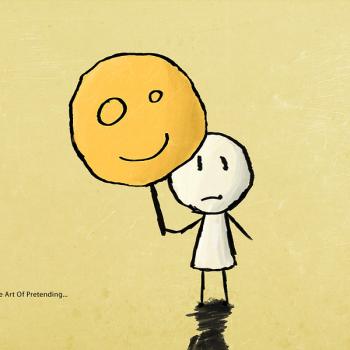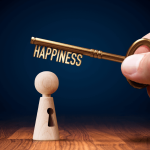One of my many interests is classical education, on the elementary, secondary, and collegiate level. A more common name for the classical education philosophy is “liberal arts,” a designation that refers not to progressive politicians but to the Latin word for freedom. The “liberal arts” referred to the kind of education to equip a free citizen of the Greek democracy or the Roman Republic, as opposed to the “servile arts,” the purely economic training given to slaves. (Go to this website for more information and resources about classical education.)
Anyway, Owen Strachan in the American Spectator sees the connection between classical education and freedom. And he sees classical schools as a way to “save America.”Why Classical Schools Just Might Save America
It’s time for a partnership between religion and freedom.
Many years ago, the Frenchman Alexis De Tocqueville surveyed the American spirit and compared it to that of his native France: “In France I had almost always seen the spirit of religion and the spirit of freedom marching in opposite directions. But in America I found they were intimately united and that they reigned in common over the same country.” The generalization was broad, but in retrospect it seems on the mark. The concepts of freedom and religion surely were connected, for example, in the First Great Awakening, which itself contributed to the revolutionary spirit of the late eighteenth-century colonies.
Fast-forward a couple centuries and it looks like we may be witnessing the untethering of this fruitful union. Freedom is paramount in our day. Not for nothing did novelist and social critic Jonathan Franzen title his most recent book Freedom, a text that showed how bankrupt the conceit of unrestrained liberty is when isolated from traditional institutions.
But religion does indeed seem to be marching in the opposite direction, led by black-suited bodyguards into a building with no windows. Whether we consider the Obama administration’s decision not to defend DOMA, on the one hand, and, on the other, this same administration’s heavy-handed efforts to bring doctrine to heel before the conscience-steamrolling Affordable Care Act, we’re observing nothing less than the separation of religion and freedom in America. In such a moment, what are religious people—and those who may be respectfully irreligious but support rights of conscience—to do?
There is much ground for common cause. Those who value truth, morality, the unfettered pursuit of life, liberty, and happiness, and the Western canon make for strange but necessary bedfellows today. Whether evangelical or Catholic, Mormon or Anglican, skeptical libertarian or Orthodox Jew, citizens who value the permanent things find these ideals strangely missing from many public school classrooms. Gender fluidity, devaluation of traditional ideals, the teaching of individualized narratives, and what Harvey Mansfield calls “samesexuality” represent the prevailing educational imperatives of many of our public schools.
Citizens who would conserve the old ways, and who recognize the value of religious groups and their contributions, are faced with a few options. First, we can opt out and retreat into our enclaves. Second, we can stay in the public schools and try to preserve what good remains in their educational core. This choice is commendable, though I suspect it will prove difficult. I wonder if we have another path though. A third option, one deserving consideration, is this: to found classical schools and open them up to all community members.
The classical school model practiced today owes largely to Dorothy Sayers, who promoted in the early twentieth century the Greco-Roman style of pedagogy. This involves teaching the “trivium” to students, composed of the trinity of grammar, logic, and rhetoric. Different classical schools arrange their curricula as they see fit, but the basic commitments of this form of education have historically included the study of Latin and Greek, the development of analytical and critical faculties (over against a narrowly defined body of facts), and the use of the Socratic method. This is a pedagogy that is not narrow, but broad; it will naturally interest many who value a good, hard, traditional education that introduces students not merely to new ideas, but to ancient civilizations and long-forgotten patterns of thought.
This model provides exactly what is missing from the modern American public school. The rationalist, the romantic, and the moralist are alive and well in the classical school. I have seen this firsthand at the stellar Highlands Latin School in my city, Louisville, Kentucky. At HLS, teachers lead students—including my child—through their Latin declensions before lunch and take them on nature walks in the afternoon. Children read Aristotle on logic in one period, then listen to a Bach symphony the next (differentiating it from Mozart). It’s a marvelous, right-and-left-brain model of education. It also produces fairly spectacular results, at least in this example: HLS is one of the top-testing schools in Kentucky, and with only a few classes graduated has sent students to places like Dartmouth, MIT, Notre Dame, Vanderbilt, and Hillsdale. (There are many other success stories, as CNN recently noted.)
Such schools are the friend, in other words, of any who wish to think well and pursue the life of the mind. I submit, therefore, that classical schools offer great promise to religious citizens and all who want to train their children to think well and to live morally. If, for example, Protestant churches will start classical schools, they will likely find that there are many community members who likewise value real, old-style, ideas-driven education (just as Catholics have known for decades). (+50 if your Burkean “little platoons” sensors are beeping right now, by the way.)
Public schools will likely continue to harden. If this proves true, religious people of all kinds should consider the formation and sponsorship of classical schools. Such institutions will be open and accessible to all who buy into the school’s standards. Individual schools will have the freedom to tailor their curriculum as they see fit.
The foregoing offers religious groups and citizens who tilt away from the prevailing secular consensus one of the last, best shots we have at genuine cultural influence and renewal. I am no triumphalist. We might lose spectacularly in coming days; there are certainly signs that point that way. But this gloomy forecast also, it must be said, might not be wholly correct. Perhaps there will be some big losses; perhaps there will be some surprising and unexpected gains. If this is true, it would not shock me if a fresh investment in education played a role in a narrative of hope.
It may just be that widespread classical education creates a corps of citizens who prize wisdom and value honest inquiry. The power of classically oriented instruction was captured eloquently by W. E. B. DuBois many years ago:
I sit with Shakespeare and he winces not. Across the color-line I move arm in arm with Balzac and Dumas, where smiling men and welcoming women glide in gilded halls. From out of the caves of the evening that swing between the strong-limbed earth and the tracery of the stars, I summon Aristotle and Aurelius and what soul I will, and they come all graciously with no scorn nor condescension. So, wed to Truth, I dwell above the veil.
The poetry should not obscure the strength of thought in these words. If the educational enterprise is in our time as in past days wed to truth—the numinous and the rational alike—then religion and freedom may work in happy partnership in this country once more.
















